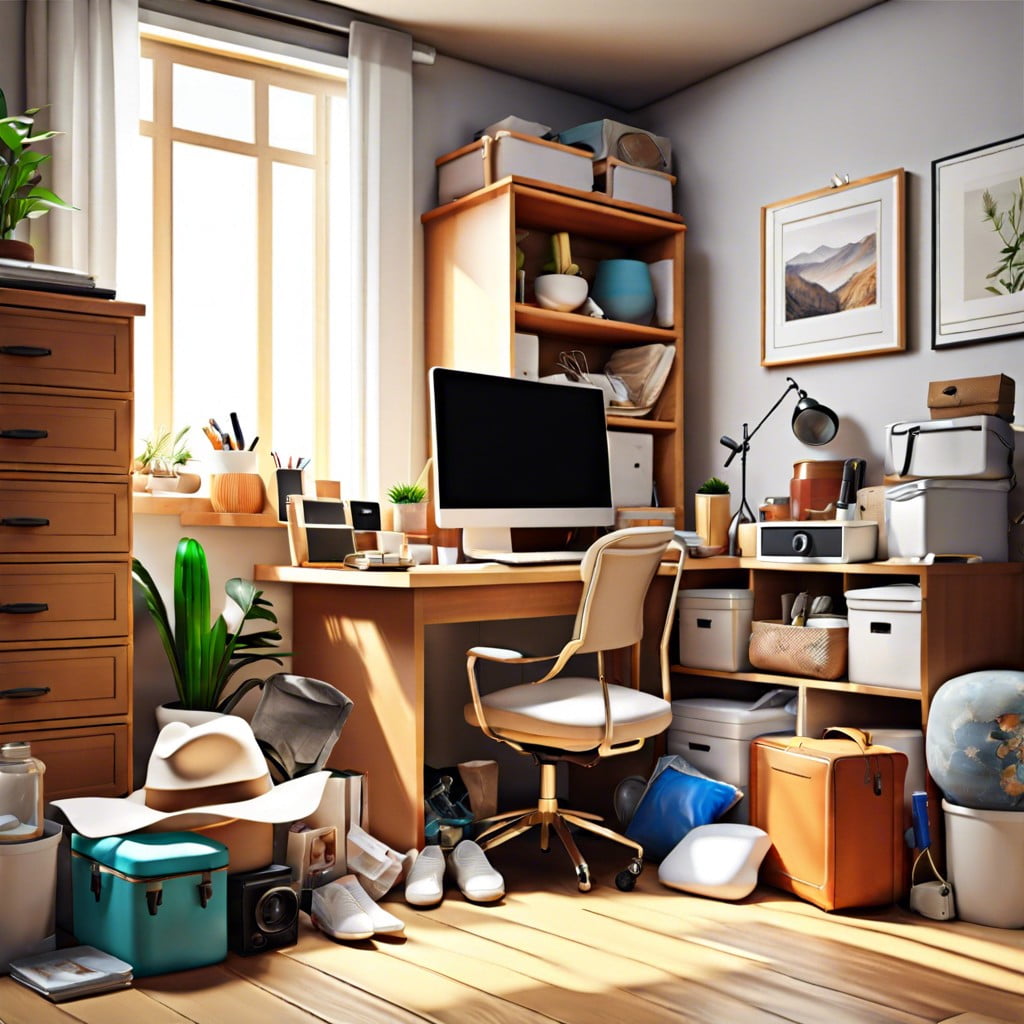Learn practical strategies to support a hoarder in decluttering their space effectively and compassionately.
Key takeaways:
- Recognize signs of hoarding: excessive acquisition, limited living space, distress or impairment, isolation.
- Approach the conversation with kindness and empathy.
- Encourage seeking professional help and support groups.
- Set clear boundaries and respect their space.
- Introduce change slowly and stay supportive.
Recognizing Hoarding Disorder in a Loved One

Understanding when collecting crosses into the realm of hoarding can be tricky. It generally involves a persistent difficulty in parting with possessions, regardless of their actual value. Here’s how you can spot some common indicators:
- Excessive acquisition: Items continue to pile up, often including trash, newspapers, and items from yard sales or freebies.
- Limited living space: Key areas of the home like the kitchen or bathroom become unusable due to clutter.
- Distress or impairment: The clutter provokes significant distress or problems in daily functioning, affecting social, occupational, or other important areas.
- Isolation: Often, a person with hoarding tendencies may withdraw from friends and family to avoid judgment or interference with their habits.
Noticing these signs can be the first step in helping someone get the support they need.
How to Talk to Someone About Their Hoarding
When discussing hoarding, approach the conversation with kindness and empathy. Remember, the goal is to support, not shame. Start by expressing your concern for their well-being rather than focusing on the clutter. Hoarding is often linked to emotional issues, so it’s crucial to communicate that you care about their feelings and are there to help, not judge.
Ensure the conversation occurs in a private, quiet setting where the person feels safe. This reduces the potential for embarrassment and helps them feel more at ease discussing this sensitive subject.
Use “I” statements to make your concerns known without making them feel attacked. For instance, you might say, “I am worried about how this clutter is affecting your health and safety,” instead of “Your house is a mess.”
Lastly, be patient and prepared for resistance. This conversation might be the first of many, so don’t expect immediate acceptance or changes. Offer your continued support and suggest working together to find professional help.
Encourage Your Loved One to Seek Treatment and Support
Addressing hoarding disorder often requires professional intervention. Start by researching therapists and organizers specializing in hoarding. Introduce the idea gently, emphasizing that seeking help is a sign of strength, not weakness.
Finding a support group can also be invaluable, as it lets the individual know they’re not alone and that recovery is possible. Local and online groups can provide both emotional support and practical tips.
Meanwhile, consider attending a few sessions yourself to learn more about the disorder and how you can best support your loved one’s journey. Be patient and remember that progress might be slow, but every small step is a victory.
Setting Healthy Boundaries in Relationships
Navigating a relationship with a hoarder involves more than just dealing with clutter. It’s crucial to establish boundaries to ensure your own well-being while supporting your loved one.
First, define your limits clearly. Decide what you are and are not willing to tolerate. For example, you might be okay with helping to sort mail but not with clearing out a garage. Communicate these boundaries to your loved one without ambiguity.
Respect their space. While it might be tempting to start throwing things away, respect that their possessions are important to them. Offer support by suggesting ways to organize or declutter, but let them take the lead.
Stick to consequences. If certain boundaries are crossed, be clear about the consequences. This isn’t about punishment, but about maintaining your own mental and emotional health.
Provide specific, achievable steps when offering help. Instead of saying, “Let’s clean the house,” propose, “Let’s start by sorting today’s mail.”
Remember, setting boundaries isn’t just for your loved one’s benefit – it’s crucial for your sanity too! Overstepping can lead to resentment on both sides, turning what should be a supportive relationship into a battleground over old newspapers and unused craft supplies. Keep it light, respectful, and productive.
How To Help a Hoarder Who Doesn’t Want Help?
Navigating the waters when a hoarder doesn’t welcome assistance can feel like trying to cook a gourmet meal with no recipe. Here are a few straightforward strategies to handle the situation:
Respect their space: Just like nobody enjoys unsolicited kitchen advice, pushing too hard can backfire. Respect their feelings and decisions, emphasizing that your concern is rooted in love and care.
Introduce change slowly: Rather than a complete overhaul, suggest small, manageable changes. Think of it as seasoning your food gradually; too much salt all at once ruins the dish.
Provide information casually: Share stories or articles about decluttering in casual conversation. It’s like planting seeds in a garden without making it obvious—you’re subtly watering the idea without forcing it to grow.
Stay supportive: Offer your presence as a sign of unwavering support. Sometimes just knowing someone is there can be like having a sous chef in a bustling kitchen, even if they aren’t chopping the vegetables.
Encourage small decisions: Celebrate any small decision they make towards decluttering. It’s like cheering for little wins in a game, which can motivate them to keep playing.
These tactics don’t guarantee a transformed hoarder overnight, but they’re practical steps in the right direction, maintaining the relationship’s harmony and possibly easing the clutter bit by bit.
Related Stories
- How to Declutter When Your Husband Is a Hoarder
- Effective Decluttering Tips for Hoarders: Simple Strategies for Organization
- Understanding Compulsive Decluttering: Causes and Solutions
- Mental Declutter Quotes: Find Your Focus with Inspirational Sayings
- How to Clean a Hoarders House: A Practical Guide for Less Stress